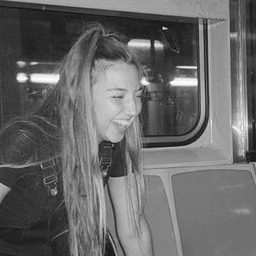
Sofia Quaglia
Journalist at Freelance
Award-winning freelance journalist covering all things science, nature and how we talk about them. Work in @nytimes @natgeo @guardian @newscientist
Articles
-
1 month ago |
newscientist.com | Sofia Quaglia
Life Tiny bone fragments from Alaska suggest birds started breeding and nesting in the Arctic 30 million years earlier than previously thought Newly discovered bone fragments from Alaska suggest birds have been breeding and nesting in the Arctic for at least 73 million years. “Which is kind of crazy, because it’s not easy to live in the Arctic and have newborn babies up there,” says study author Lauren Wilson at Princeton University.
-
1 month ago |
wyborcza.pl | Sofia Quaglia
-
1 month ago |
newscientist.com | Sofia Quaglia
Capuchin monkeys on a remote Panamanian island are abducting babies from howler monkey families, in a first-of-its-kind trend. The wild population of white-faced capuchins (Cebus capucinus imitator) living on Jicarón Island has been monitored with 86 motion cameras since 2017 to capture their sophisticated use of stone tools to crack open hard fruits, nuts and shellfish.
-
1 month ago |
pina.com.fj | Sofia Quaglia
President Donald Trump is trying to fast track new deep sea mining efforts, but half a century after the world’s first deep sea mining tests picked mineral-rich nodules from the seafloor off the U.S east coast, the damage has barely begun to heal. By Sofia QuagliaPlunging to the ocean’s abyss on the Blake Plateau, a deep-sea mountain range off the coast of North Carolina, is an otherworldly experience. It’s like no other ocean bed that microbiologist Samantha Joye has ever visited.
-
1 month ago |
bbc.com | Sofia Quaglia
Scars from the world's first deep sea mining test 50 years onUSGSHalf a century after the world's first deep sea mining tests picked nodules from the seafloor off the US east coast, the damage has barely begun to heal. Plunging to the ocean's abyss on the Blake Plateau, a deep-sea mountain range off the coast of North Carolina, is an otherworldly experience. It's like no other ocean bed that microbiologist Samantha Joye has ever visited.
Try JournoFinder For Free
Search and contact over 1M+ journalist profiles, browse 100M+ articles, and unlock powerful PR tools.
Start Your 7-Day Free Trial →X (formerly Twitter)
- Followers
- 1K
- Tweets
- 3K
- DMs Open
- Yes

RT @newscientist: Tiny bone fragments from Alaska suggest birds started breeding and nesting in the Arctic 30 million years earlier than pr…

RT @migueldobrich: Brandon (@big_data_kane) bridges science and culture like no one else — it’s genuinely inspiring. He’s a brilliant scien…

RT @inaturalist: propaganda we're not falling for: - there's no nature in urban areas - we already know everything about plants & animals -…